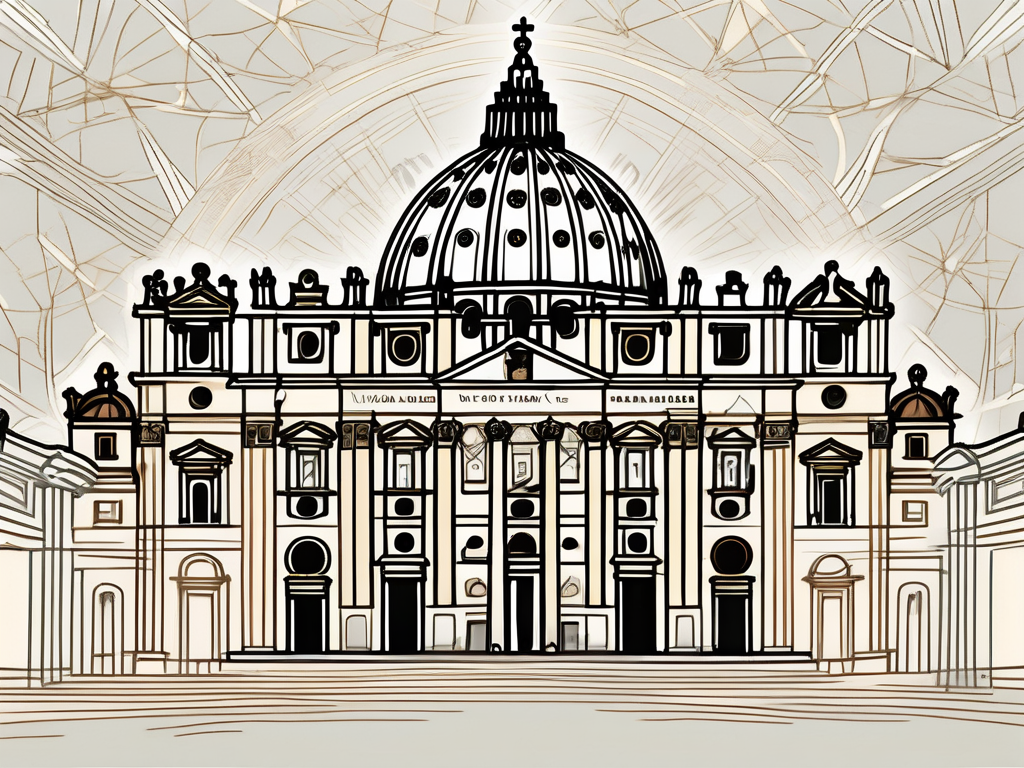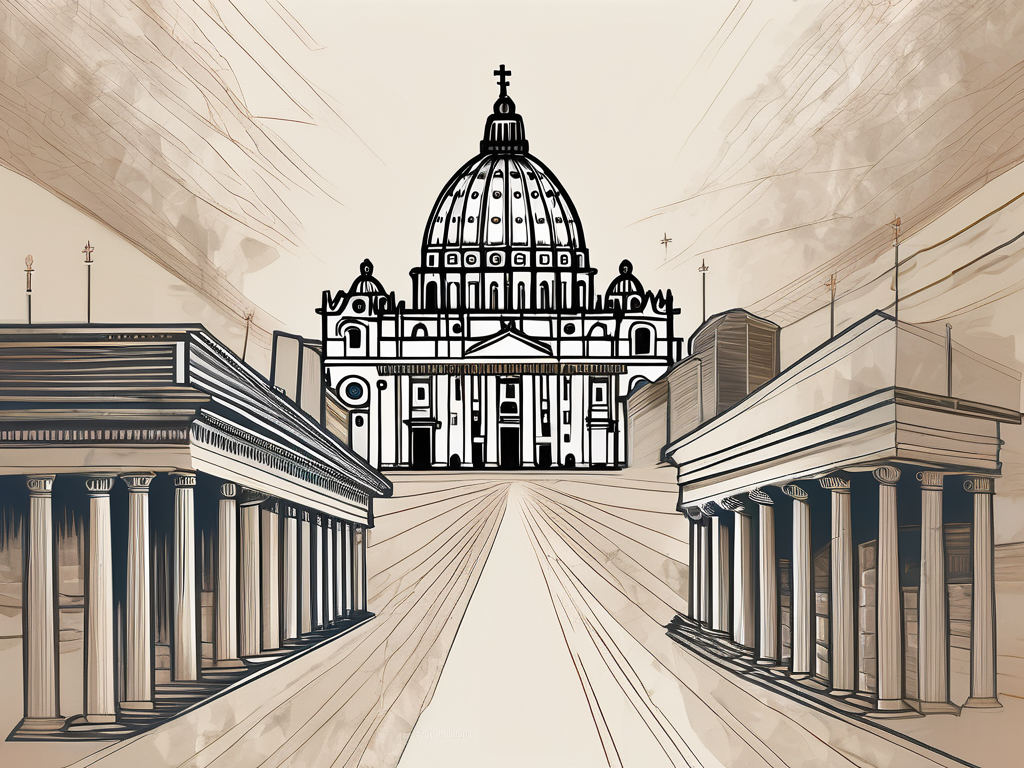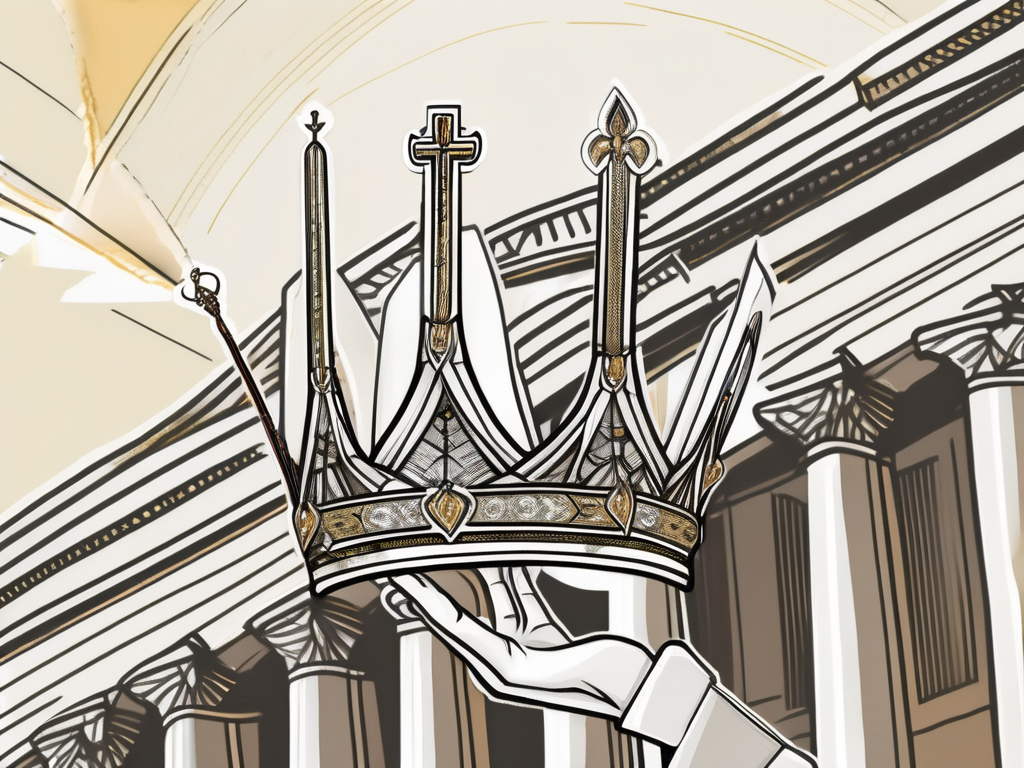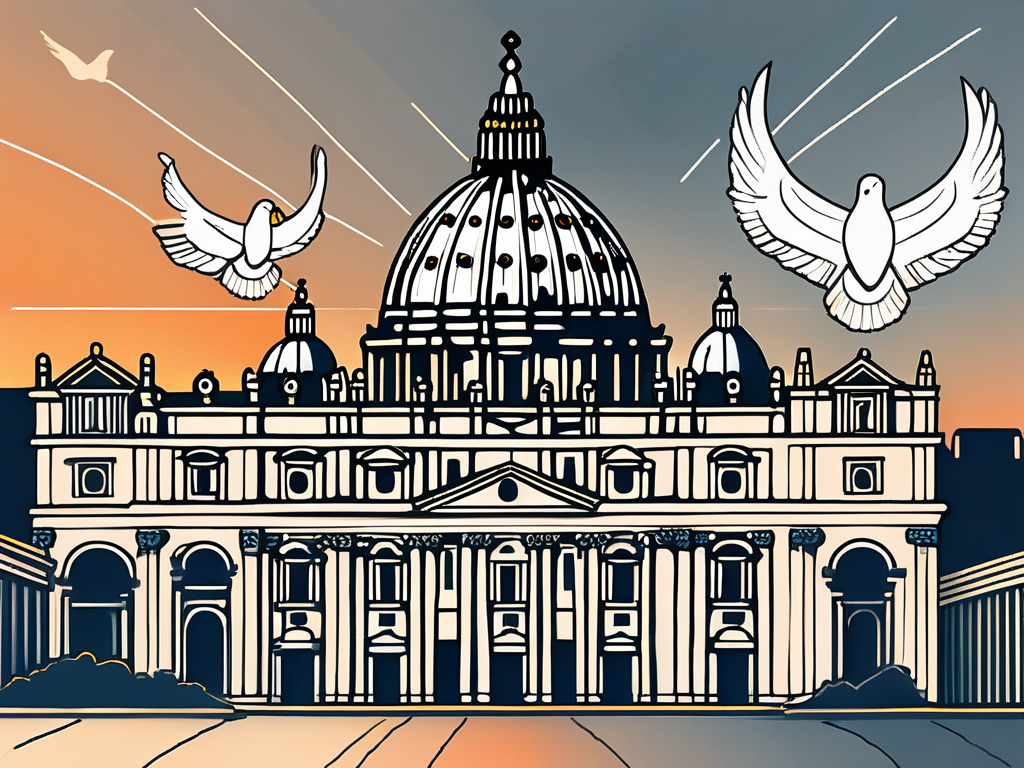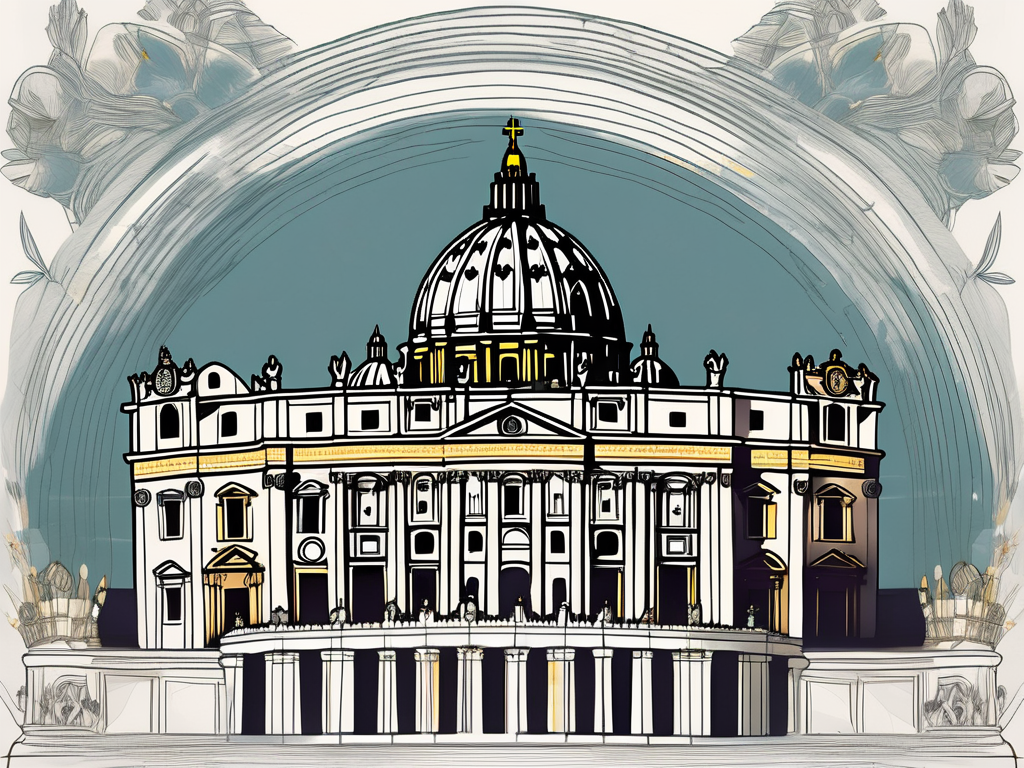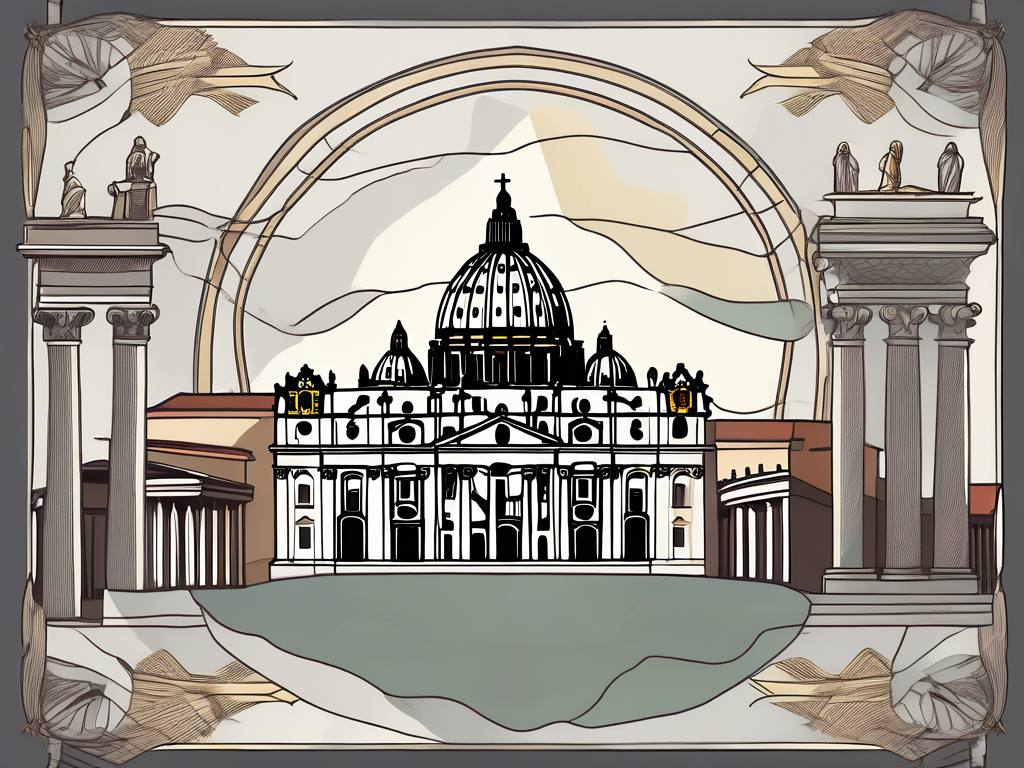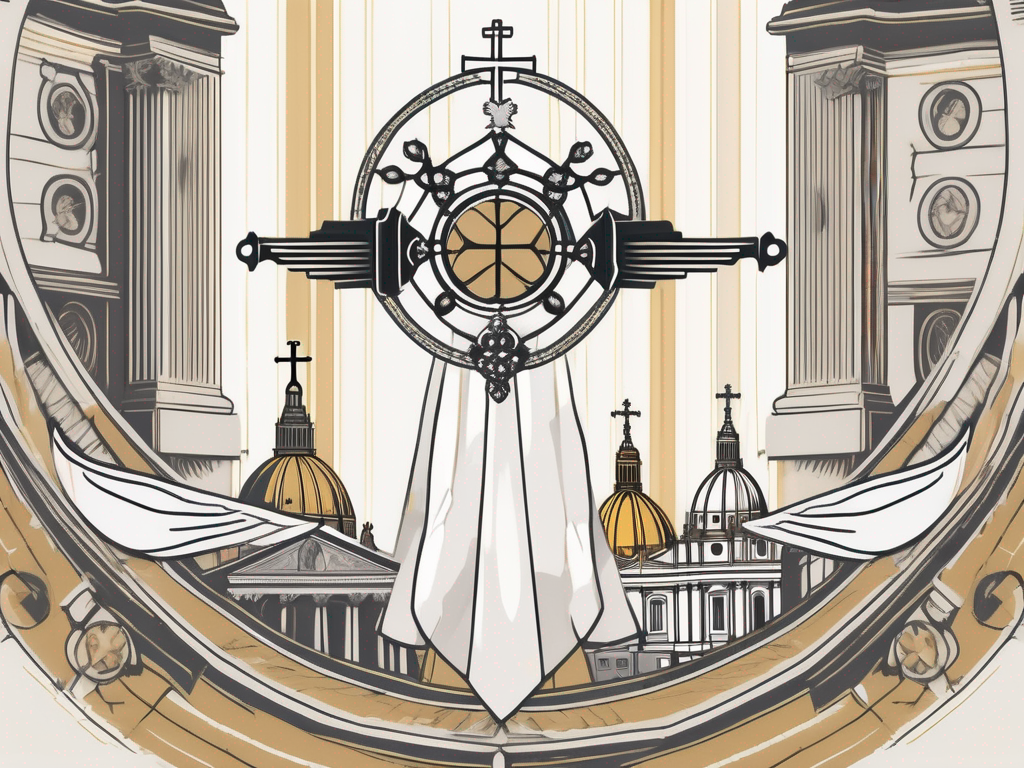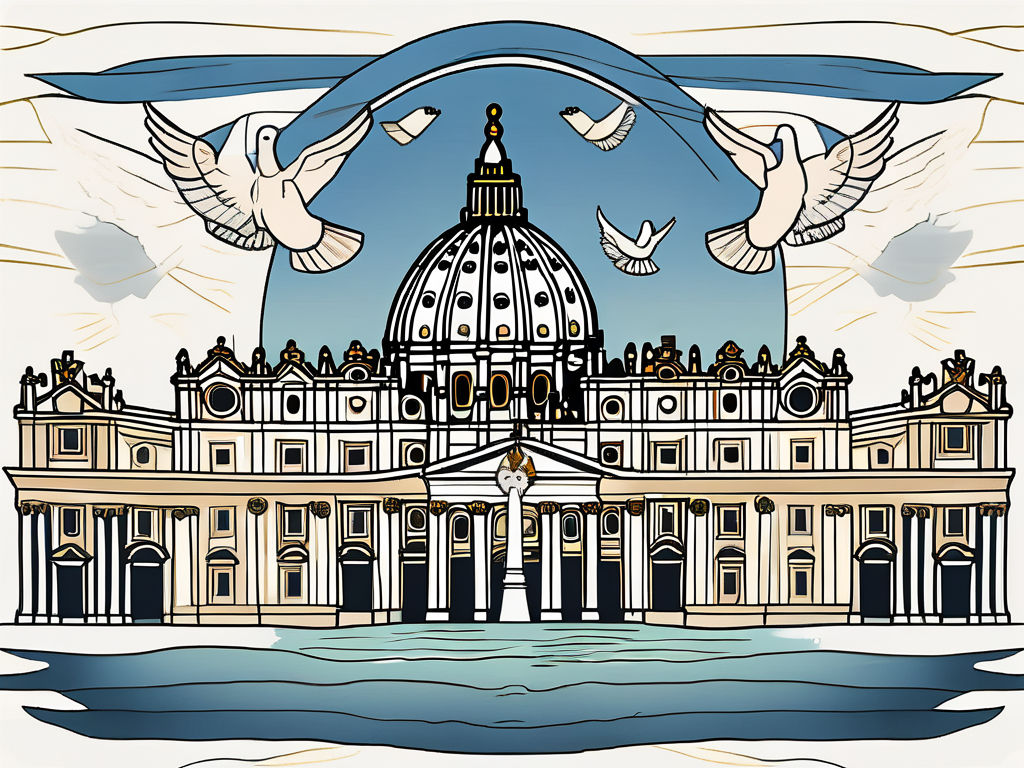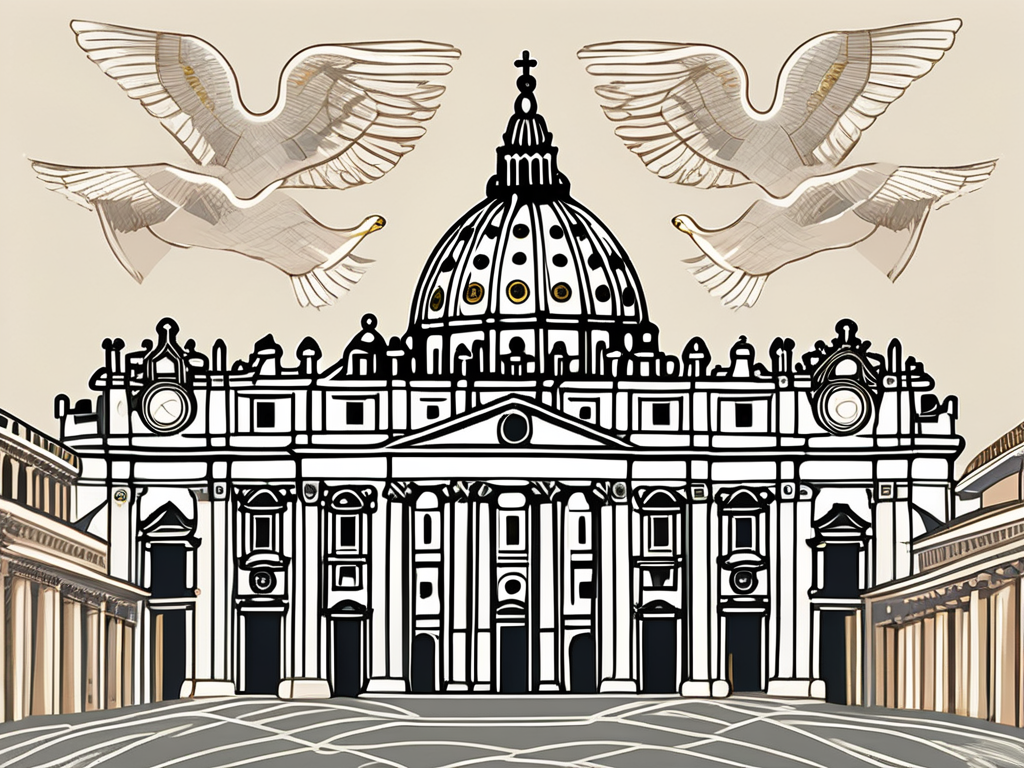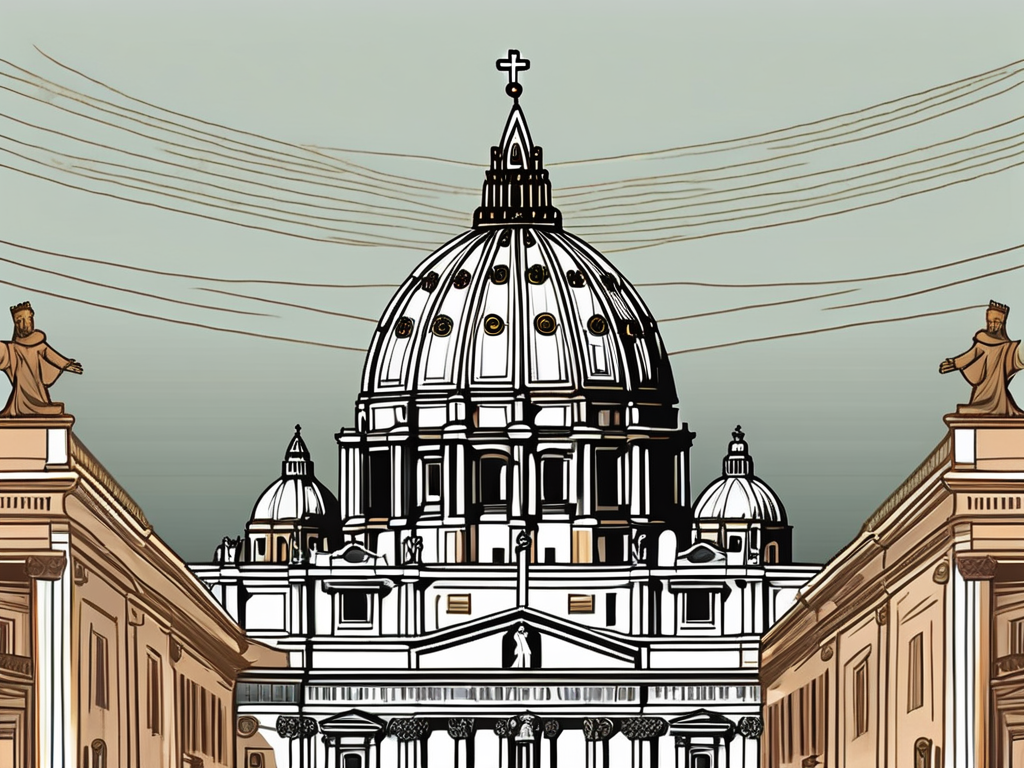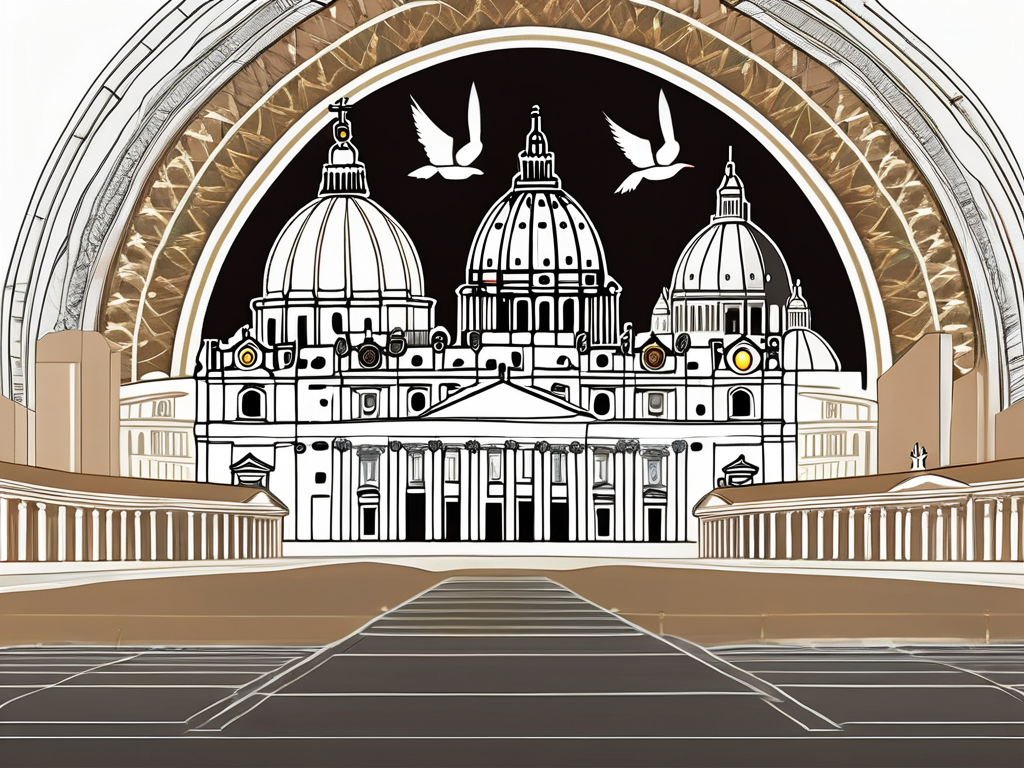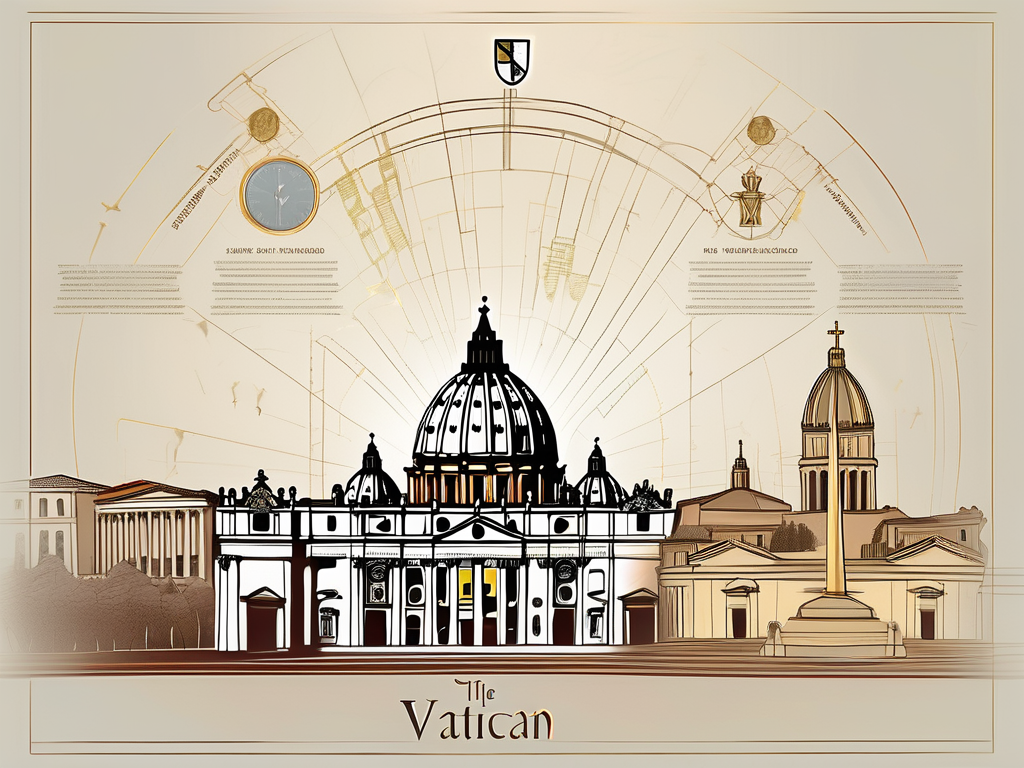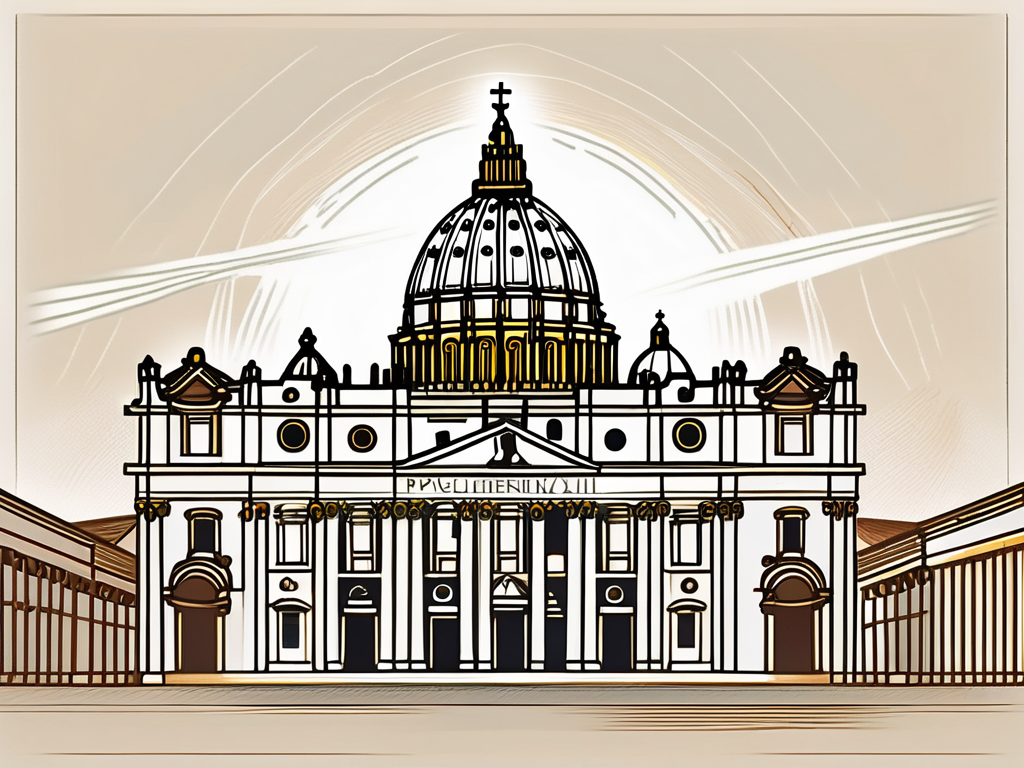Pope Pius II, born Enea Silvio Piccolomini, lived a remarkable life that left a lasting impact on the Catholic Church. From his early years to his influential papacy, let’s explore the journey of this remarkable individual and uncover his enduring legacy.
Early Life and Education of Enea Silvio Piccolomini
Born into a noble family on October 18, 1405, in the charming town of Corsignano, Italy, Enea Silvio Piccolomini had a promising future ahead of him. Raised in a loving and supportive environment, he had the privilege of a good education and exposure to various intellectual pursuits from an early age.
As the youngest of eighteen children, Enea Silvio grew up in a household that valued knowledge and the power of ideas. His family background instilled in him a sense of responsibility and the importance of making a positive impact on the world. Little did he know that these values would shape his future and lead him to the highest seat in the Catholic Church.
Birth and Family Background
Corsignano, nestled amidst the picturesque hills of Tuscany, was not just the birthplace of Enea Silvio Piccolomini but also the cradle of his family’s proud heritage. The Piccolomini family, well-respected and influential, belonged to the noble class and held positions of power in local government.
Surrounded by the beauty of nature and the rich cultural traditions of his homeland, Enea Silvio experienced a childhood filled with warmth and affection. The town’s vibrant festivals and celebrations provided a backdrop for his early years, fostering a deep appreciation for art, music, and literature.
His parents, both well-educated and well-read, encouraged his curiosity and nurtured his intellectual growth. They exposed him to a wide range of books and encouraged him to explore various subjects, igniting a lifelong passion for learning.
Education and Early Influences
Enea Silvio’s thirst for knowledge was unquenchable, and he eagerly absorbed everything the world had to offer. His education began at the prestigious University of Siena, where he excelled in his studies and delved into a wide range of subjects, from philosophy to theology.
During his time at university, Enea Silvio encountered influential thinkers and scholars who left a lasting impression on his intellectual development. He engaged in spirited debates, challenging conventional wisdom and pushing the boundaries of knowledge.
His love for writing and communication also blossomed during these formative years, manifesting in his compelling writings, poetry, and works of fiction. Enea Silvio’s eloquence and ability to captivate an audience with his words became evident, setting the stage for his future as a renowned orator and writer.
Furthermore, his exposure to different cultures and ideas broadened his perspective, fostering a deep appreciation for diversity and the interconnectedness of the world. This global outlook would later influence his diplomatic endeavors and his efforts to bridge divides between nations.
As he continued his studies, Enea Silvio’s intellectual pursuits took him beyond the confines of the university. He embarked on extensive travels, exploring the rich tapestry of Europe’s intellectual and cultural landscape. These journeys exposed him to new ideas, customs, and traditions, further shaping his understanding of the world.
Throughout his educational journey, Enea Silvio’s insatiable curiosity and thirst for knowledge propelled him forward. He dedicated countless hours to reading, studying, and engaging in intellectual discourse, always seeking to expand his understanding and contribute to the greater body of knowledge.
Little did he know that his passion for learning and his relentless pursuit of truth would lead him down a path that would forever change the course of his life and the history of the Catholic Church.
Ascension to Papacy as Pope Pius II
After years of dedicated service to the Church and his intellectual pursuits, Enea Silvio was elected as the 211th Pope of the Catholic Church and took the name Pius II in 1458. This marked the beginning of a transformative period in both his life and the history of the Church.
As Pope Pius II ascended to the papacy, the world watched with anticipation and curiosity. His reputation as a learned scholar and a skilled diplomat preceded him, and people wondered how he would use his intellect and charisma to lead the Church.
The election of Pope Pius II was not without its challenges. The Church was facing internal divisions and external threats, and many believed that a strong and visionary leader was needed to guide them through these turbulent times. With his election, the hopes of millions were placed upon his shoulders.
Election and Papal Coronation
Upon his election, Pope Pius II’s first act was to declare a call for unity and healing within the Church. With a clear vision and unwavering determination, he sought to mend the divides that had tarnished the Church’s reputation and stifled its growth.
The papal coronation of Pope Pius II was a momentous occasion that brought together dignitaries, clergy, and faithful from all corners of the world. The streets of Rome were adorned with colorful banners and flowers, and the air was filled with a sense of anticipation and excitement.
As the newly elected Pope made his way to St. Peter’s Basilica, the crowd erupted in cheers and applause. The sound of trumpets filled the air, announcing the arrival of the spiritual leader who would guide the Church into a new era.
Inside the Basilica, the papal coronation ceremony began. The majestic beauty of the surroundings, with its intricate mosaics and towering columns, served as a reminder of the Church’s rich history and enduring legacy.
Pope Pius II, dressed in his resplendent papal robes, stood before the altar as the cardinals and bishops gathered around him. With a solemn voice, he recited the ancient prayers and blessings, invoking the guidance of the Holy Spirit.
As the ceremony reached its climax, the crown was placed upon Pope Pius II’s head, symbolizing his authority and responsibility as the successor of St. Peter. The crowd erupted in applause and cheers, their faith in the Church and its new leader reaffirmed.
Key Decisions and Policies
During his papacy, Pope Pius II made numerous key decisions that shaped the course of the Church and solidified his place in history. He actively campaigned for peace, calling upon European nations to set aside their differences and jointly combat external threats to Christian faith.
Pope Pius II recognized that the Church’s influence extended beyond the spiritual realm. He understood the power of culture and the arts in spreading the message of the Church to the masses. With this in mind, he supported the Renaissance movement, fostering an environment that encouraged artistic expression and literary achievements.
Under Pope Pius II’s patronage, artists and scholars flourished. Painters, sculptors, and architects were inspired to create masterpieces that celebrated the beauty of God’s creation. Poets and writers penned works that explored the depths of faith and the human experience.
Furthermore, Pope Pius II sought to reform the Church internally, endeavoring to eliminate corruption and promote spiritual devotion among the clergy and laity alike. He implemented stricter guidelines for the selection of bishops and priests, ensuring that only those who were truly dedicated to serving God and His people were ordained.
Pope Pius II’s papacy was marked by his unwavering commitment to the Church and its mission. His leadership and vision brought about a period of renewal and growth, leaving an indelible mark on the history of the Catholic Church.
Contributions to the Catholic Church
Pope Pius II’s contributions extended beyond his administrative reforms; he left an indelible mark on the Catholic Church through his various endeavors.
Architectural and Cultural Endeavors
An avid patron of the arts, Pope Pius II embarked on ambitious architectural projects that showcased the grandeur of the Catholic faith. His support enabled the construction of magnificent structures, such as the Pienza Cathedral and the Piccolomini Library, which stand as lasting testaments to his vision and taste.
Additionally, Pope Pius II held a deep appreciation for culture and literature. As a prolific writer himself, he inspired a wave of humanistic thought within the Church, encouraging scholars and theologians to explore new ideas and refine their understanding of the faith.
Theological Contributions and Controversies
Pope Pius II’s papacy was not without controversy, as his theological and political stances sometimes polarized the faithful. His efforts to bridge the divide between the Eastern and Western Churches, although laudable, faced resistance from conservative factions within the Church.
Moreover, his writings, particularly his famous work “Commentaries,” sparked debate among religious scholars due to its frank discussions on topics considered sensitive at the time.
Pope Pius II and the Crusades
Recognizing the urgency to defend Christianity against the Ottoman Empire’s advances, Pope Pius II called for a Crusade, seeking to galvanize European nations into action.
Call for Crusade Against the Ottomans
Pope Pius II’s plea for a Crusade was met with mixed responses. While some nations pledged their support and rallied behind his cause, others remained unconvinced, preoccupied with their own political interests.
Undeterred, Pope Pius II tirelessly campaigned for the Crusade, delivering powerful sermons and leveraging his influence to gather a formidable coalition. Though the Crusade did not achieve all its objectives, Pope Pius II’s call for unity and resistance against the Ottoman Empire laid the groundwork for future endeavors dedicated to preserving Christian lands.
Impact and Aftermath of the Crusades
While the Crusades did not result in an ultimate victory, Pope Pius II’s efforts to mobilize European powers against the Ottoman threat were essential in preserving Christian influence in the region. His commitment to defending Christian values and lands resonated with believers across Europe, solidifying the reputation of the Catholic Church as a bastion of truth and resilience.
The Legacy of Pope Pius II
Pope Pius II’s legacy extends far beyond his influential papacy. His impact on the Church and subsequent popes shaped the course of Catholicism for generations to come.
Influence on Future Popes and the Church
Pope Pius II’s commitment to cultural and intellectual pursuits inspired future popes to embrace humanist principles and explore the intersection between faith and reason. His ability to bridge the gap between tradition and innovation set a precedent for subsequent pontiffs, ensuring the Church remained relevant in a rapidly changing world.
Pope Pius II’s Canonization and Sainthood
In recognition of his profound impact on the Church and his unwavering dedication to the service of God, Pope Pius II was canonized as a saint in 1461. His canonization marked a testament to the enduring legacy of a man who dedicated his life to the betterment of the Catholic Church and the faithful.
In conclusion, Pope Pius II’s life journey showcases the power of one individual to make a lasting impact. From his humble beginnings to his transformative papacy, he left an indelible mark on the Catholic Church. Pope Pius II’s legacy serves as an inspiration for both religious leaders and believers, reminding us of the potential for positive change when guided by conviction, compassion, and a desire to serve others.
